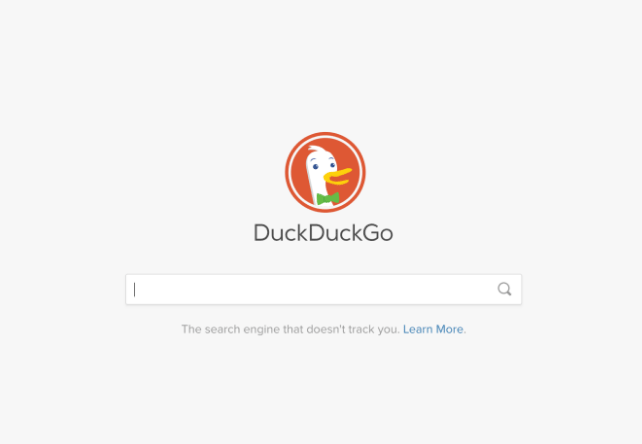Do you know DuckDuckGo? Is DuckDuckGo safe? In this post, MiniTool Partition Wizard introduces DuckDuckGo to you and lists two important reasons why DuckDuckGo is safe. If you are interested in privacy-focused browsers, you should read this post.
About DuckDuckGo
In 1993, “The New Yorker” magazine published a caricature: On the Internet, nobody knows you’re a dog. This comic embodies the cores of Internet: privacy and anonymity. But on the current Internet, privacy and anonymity have become more and more strange to people.
Nowadays, various websites and services increasingly regard the collection of user data as the most important business model. Users’ private information has nowhere to hide on the Internet, and even becomes a currency circulated between websites.
If you searched some keywords on Internet a minute ago, then you will get a lot of advertisements related to those keywords a minute later. In most search engines, your searches are tracked, mined, and packaged up into a data profile for advertisers to follow you around the Internet through those intrusive, annoying, and ever-present banner ads.
As people’s awareness of privacy has increased, more and more people have turned to other anonymous search engines. DuckDuckGo is one the best anonymous engines. It is an Internet search engine founded in 2008 and its headquarters is located in Valley Forge, Pennsylvania, USA.

Look at DuckDuckGo’s home page, under the search bar, the slogan is “The search engine that doesn’t track you”. Besides, this search engine has ever made an advertisement “Google tracks you. We don’t.”
Anyway, due to various reasons, DDG began to grow rapidly. More and more browsers like Safari, Firefox, Tor, etc. began to accept DDG as an option search engine. But nowadays, this search engine is not popular enough still. Many people don’t know it and ask questions like “is DuckDuckGo safe”.
Is DuckDuckGo Safe?
Compared to traditional search engines like Google, Yahoo, etc., DuckDuckGo is safe enough. The reasons are as follows:
1. It doesn’t collect users’ data.
Most search engines usually collect and record users’ information, including but not limited to your IP address, geographic location, search history, etc. The purpose is to profile users, so that the promotional information can be delivered to users more accurately. In this way, users are more likely to click these advertisements to visit, thereby increasing its advertising revenue.
However, collecting and recording user data may cause user information to be resold and stolen. Similar incidents have been commonplace in recent years.
In this aspect, DuckDuckGo promises that it will not record your User Agent (user identifier that is used to identify your browser), IP address, search keywords and other information passively transmitted to it, nor will it actively identify you through Cookies (local cache stored by web pages) and other mechanisms.
2. It hides users’ searching behaviors.
Generally, when you click on a link to website B on search result page A, due to the mechanism of the HTTP protocol, website B will know from the source address (referrer) field in the HTTP header that you are jumping from page A.
In addition, because the keywords can be seen from the URL of the search page, website B also knows what search keywords the user used to find it. This further exacerbates the risk of privacy disclosure.
Considering this risk, DuckDuckGo will process the requests when forwarding users’ visits, so that the third-party websites cannot know what search result page you jumped from. In their views, users are as if they access their websites by entering the website addresses.
In addition, DuckDuckGo will also automatically modify the URLs of some major sites so that URLs point to their HTTPS addresses when you click to access. This will further improve users’ privacy security.
However, any revenue comes at a cost. The price of privacy protection is that, in DuckDuckGo, you cannot get the “privately customized” search results offered in other services and the response of HTTPS connections is usually slower.
How to Change Default Search Engine on the New Microsoft Edge


User Comments :